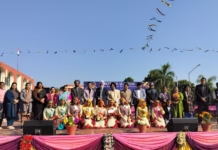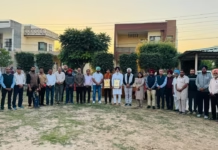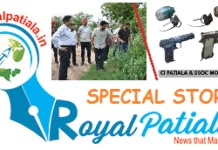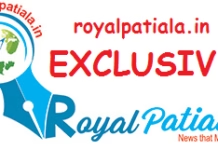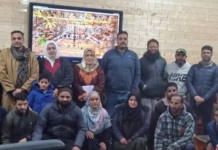Dr. Vishal Goel and his team get ISLRN for their Language resources
Kanwar Inder Singh/ royalpatiala.in
Every object in the world requires a kind of identification in order to be correctly recognised. Traditional printed material like books, for example, have International Standard Book Number (ISBN), the Library of Congress Control Number (LCCN), the Digital Object Identifier (DOI) and several other numeric identifiers as a unique identification scheme. Book identifiers allow one to easily identify books in a unique way.
In similar way, Journals are allocated unique ISSN (International Standard Serial Number) for identifying them in a unique way. Recently, considering the growing number of Language Resources (LRs), ISLRN (International Standard Language Resource Number) has been introduced. ISLRN is a new, unique and universal identification schema for Language Resources which provides Language Resources with unique names using a standardized nomenclature.
This will ensure that LRs are correctly identified, and consequently, recognised with proper references for their usage in applications in R&D projects, products evaluation and benchmark as well as in documents and scientific papers. Moreover, it is a major step in the networked and shared world that Human Language Technologies (HLT) has become. Unique resources must be identified as they are and meta-catalogues need a common identification format to manage data correctly. Therefore, LRs should carry identical identification schemes independently of their representations, whatever their types and wherever their physical locations (on hard drivers, Internet or Intranet) may be. Having an ISLRN will make your resource unique and then nobody will take it for something else all over the world. Moreover it will help you to make it more visible. An ISLRN is a randomly created number with a check digit that validates a Verhoeff algorithm.

Dr. Vishal Goyal, Professor, Department of Computer Science told that lot of research is underway in relation to Language Technologies but the main difficulty faced by most of the researchers is data which is commonly not shared openly by most of the NLP research groups. And whosoever wants to start research, they need to start from zero with the creation of dataset which has already been developed by others. To overcome this problem, I have decided to keep sharing our resources with the NLP community so that they can work further on the work rather than starting from same point. Considering this, we decided to register our Language resources developed so far his research career with unique identification number and will share all the resources to NLP community for using.
Thus, my Ph.D. Scholars Dr. Manpreet Singh Lehal, Dr. Kamal deep Goyal, Dr. Kapil Dev Goyal, Dr. Mukhtiar Singh Rai Dr. Deepali Bansal and Dr. Neetika Bansal were advised to register their language resources developed during their research work and get ISLRN for these resources. Language resources developed were – 14 Lakh English-Punjabi Parallel Corpus, 14 Lakh English-Punjabi Comparable Corpus, 10 Lakh English-Punjabi Code Mix Social media Tweets, 2.5 Lakh English and Punjabi Multi Word Expressions (MWEs) and so on. All have applied for ISLRN registering themselves at website http://islrn.org. Dr. Manpreet Singh Lehal, Dr. Kamal Deep Goyal and Dr Kapil Dev Goyal have been allocated ISLRN number viz. 880-749-246-493-2, 272-525-370-994-7, 921-152-915-971-8 respectively. To the best of our knowledge, this will be first of its kind of initiative by Prof. Vishal Goyal and his team. Dr. Gurdeep Singh Batra, Dean Ressearch, was overwhelmed to know about this unique initiative taken by Prof. Vishal Goyal.
He told that this will help in making Punjabi University presence global. Prof. R.K.Bawa, Dean Faculty of Computing Sciences informed that Department of Computer Science has always lead most of the Universities in Punjab for doing research in Natural Language Processing. Dr. Dharam Veer Sharma said that he is very happy to know that our department faculty has make mind in sharing language resources to NLP community for further researches.
He informed that he himself is working a lot in NLP, Digital Image Processing and Pattern recognition research areas. Dr. Vishal Goyal, Dr. Lalit Goyal, Dr. Ajit Kumar and Dr. Sahil Raj informed the correspondent that now these resources will be shared through either NLPAI (Natural Language Processing Association of India) or ELRA (European Language Resources Association) or similar other agencies for promoting further research in this research field.
May 6,2021


